4 April 2014: Programme Review 2013
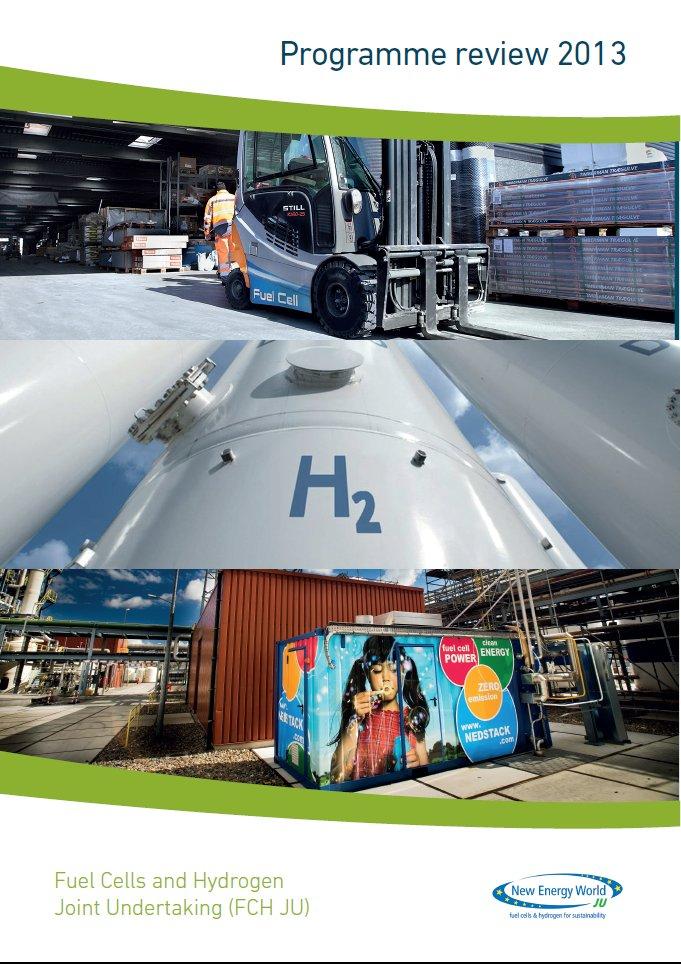 |
“The 2013 Programme Review is the third annual review of the FCH JU portfolio of projects. This edition covers over 100 projects, funded through annual calls for proposals from 2008 to 2012. The Programme Review serves to evaluate the achievements of the portfolio of FCH JU-funded projects against FCH JU strategic objectives in terms of advancing technological progress, addressing horizontal activities, and promoting cooperation with other projects both within the FCH JU portfolio as well as externally. The 2013 Review confirms that the portfolio of projects supported within energy and transport pillars, and within its cross-cutting activities, is a solid one, aligned with the FCH JU strategic objectives. Industry and research collaboration is strong, with SMEs making up 30% of total participants. The continued expansion of demonstration activities in both pillars answers to a greater emphasis on addressing the commercialisation challenge, which is bolstered by activities in basic and breakthrough research.” To consult the full report (25 MB) |
A roadmap for financing hydrogen refueling networks – Creating prerequisites for H2-based mobility
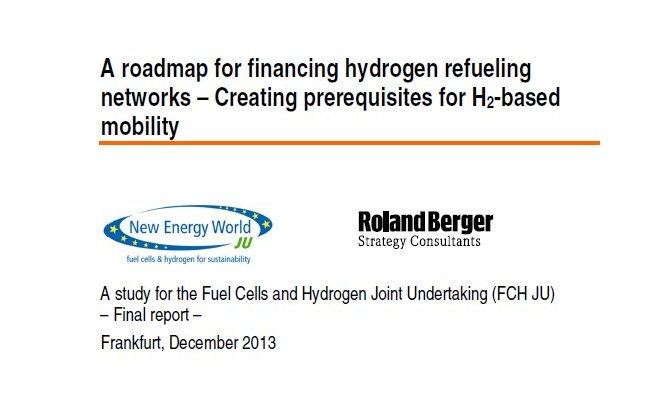 |
Fuel cell electric vehicles (FCEVs) are zero tailpipe emission vehicles. Their large-scaledeployment is expected to play a major role in the de-carbonization of transportation in the European Union (EU), and is therefore an important policy element at EU and Member State level. For FCEVs to be introduced to the market, a network of hydrogen refueling stations (HRS) first has to exist. From a technological point of view, FCEVs are ready for serial production already: Hyundaiand Toyota plan to introduce FCEVs into key markets from 2015, and Daimler, Ford and Nissanplan to launch mass-market FCEVs in 2017. At the moment, raising funds for building the hydrogen refueling infrastructure appears to be challenging. This study explores options for financing the HRS rollout which facilitate the involvement of privatelenders and investors. It presents a number of different financing options, involving public-sector bank loans, funding from private-sector strategic equity investors, commercial bank loans, privateequity, and funding from infrastructure investors. The options outline the various requirements forn accessing these sources of funding with regard to project structure, incentives and risk mitigation. The financing options were developed on the basis of discussions with stakeholders in the HRS rollout from industry and with financiers. This study was prepared by Roland Berger in close contact with European Investment banks and a series of private banks. This study explores in details the business cases for HRS in Germany and UK. The conclusion can be easily extrapolate to other countries. To consult the full report Readers interested in estimating what a HRS network would look like in other EU countries are invited to use the attached simulator 12 March 2014: Study on development of water electrolysis in the EU Final Report |
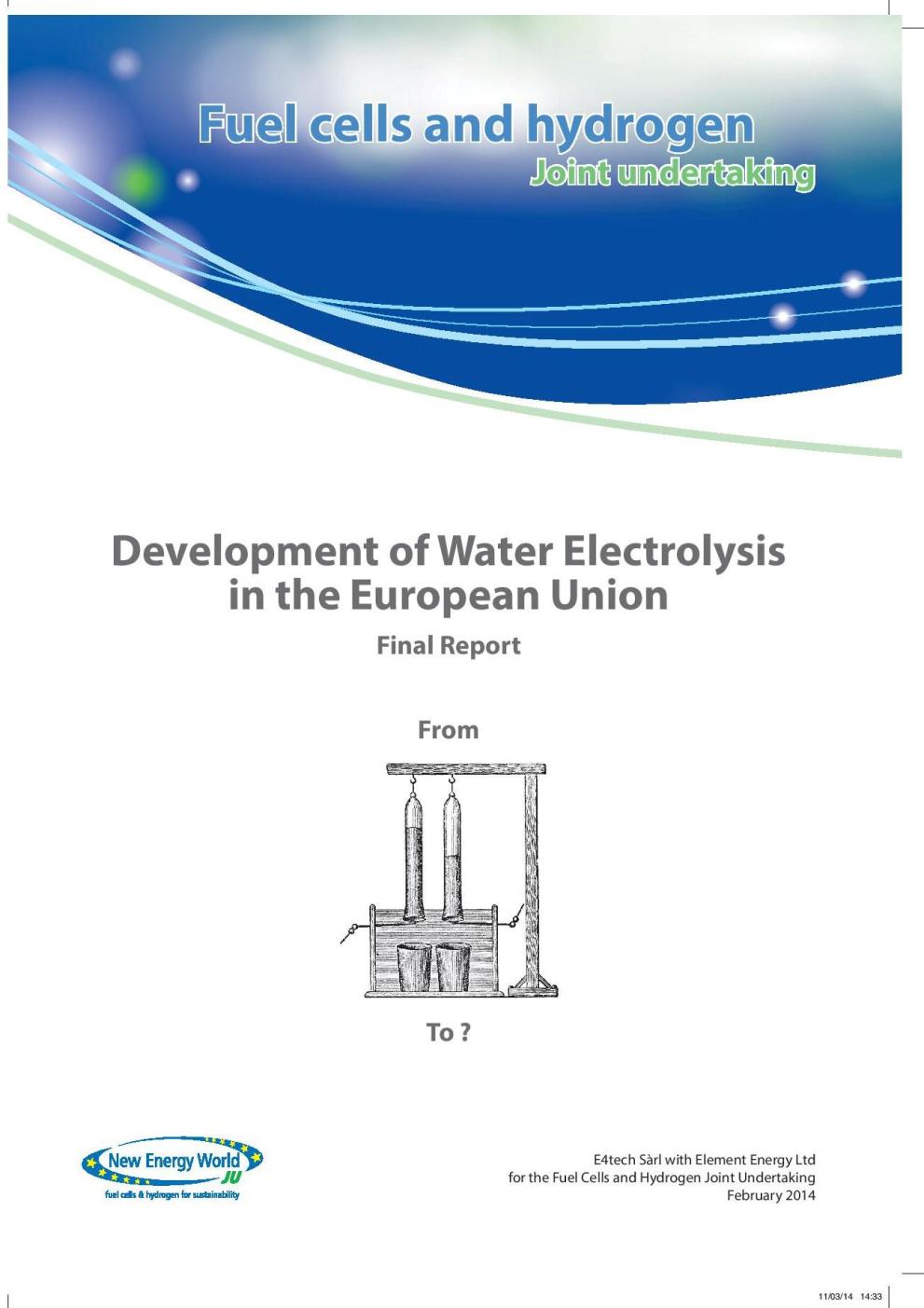 |
In view of the recent interest in the transformation of renewable energy into a new energy vector that did not produce by combustion greenhouse gases emissions, the Fuel Cells and Hydrogen Joint Undertaking (FCH JU) commissioned this report to a consultancy to get a better understanding of the industrial perspectives of water electrolysis in Europe. and the role that public support has in that evolution. To consult the full presentation(3,63 MB) |
13 November 2013: FCH JU General presentation
|
This new communication tool has been produced on the occasion of the Stakeholders General Assembly 2013. It gathers general information about FCH activities as well as facts and figures by application area. |
4 April 2013: Programme Review 2012
|
|
Initiated in 2011, the 2012 programme review edition covered 71‘live’ projects from the 2008, 2009 and 2010 calls for proposals,together with some projects from the 2011 call. Total fundingfor these projects stands at close to € 450 million, 50% of which comes from FCH JU financial contributions and 50% of which The 2012 Programme review confirms the FCH JU has continued to make progress against its principle objectives as set out in the Multi-Annual Implementation Plan (MAIP), notably vehicles and materials performance, durability, and costs reduction for both components and systems. A significative extension of the |
7 March 2013: Study on jobs and investment in the fuel cells and hydrogen sector
|
The Fuel Cells and Hydrogen Joint Undertaking (FCH JU) commissioned this report to a consultancy to get a better understanding of the past and future evolution of the European Fuel Cell and Hydrogen (FC&H) sector, and the role that public support has in that evolution. The results of this report are based on three data sources: Survey results: A survey was sent out to 458 companies that are liaised to the FCH JU. 154 people responded. (see list in annex) Desk research: A wide range of industry reports was consulted to supplement and cross check the results of the survey. However, given the still nascent state of the industry, the information gathered with this exercise was limited. Interviews: Key stakeholders in the European FC&H sector were interviewed to get the qualitative story behind the results from the survey and the desk research. These stakeholders varied from fuel cell manufacturers to government officials, from energy companies to automotive OEMs |
6 December 2012- Final report of the bus study: Urban buses: alternative power trains for Europe
|
A coalition of 40 industrial companies and government organizations, financially supported by the FCH JU, elaborated a technology neutral and fact-based comparative study on eight different powertrain technologies for urban buses in Europe from 2012 to 2030. According to the results of the study, only fully electric powertrain buses (based on hydrogen, batteries or trolley system) have the potential to achieve zero local emissions by drastically reducing well-to-wheel emissions. Following the positive comparative result for fuel cell hydrogen urban buses, the FCH JU will launch a follow-up study that more specifically defines real uptake scenarios for market entry scheduled to starting before summer 2013. |
18 April 2012 - Programme Review 2011
|
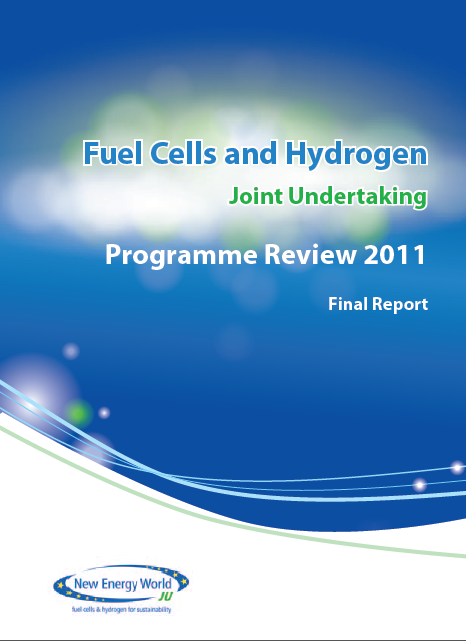
|
The Fuel Cells and Hydrogen Joint Undertaking (FCH JU) has the ambitious objective to place Europe at the forefront of the development, commercialization and deployment of fuel cells and hydrogen technologies, as of 2015. About €470 million, over a six year period, have been granted by the European Union to achieve this, and private funds are being attracted to support the same ambition, as part of the global European effort embedded in the multi-annual implementation plan MAIP (2008-2013). A periodic evaluation of such a strategic program is relevant to address the question of whether the public-private partnership is on the path of reaching its objectives and to enable adjustments to its course if and where needed. This first Programme Review from the FCH JU has the objective of assessing the portfolio of projects; 44 projects from the call 2008 and 2009 as well as some 14 projects supported by the European Commission under the 7th framework programme, which are linked to the Joint Undertaking portfolio and have been either the forerunners or the complement of a number of FCH JU projects. These projects cover a mix of basic and applied research, and demonstration activities. The review process is intended to take place on an annual basis and to contribute as far as possible to a pro-active and continuous management of the entire portfolio, future calls as well as to the next phase of the programme. To consult the full report(4.8 MB). |
The great transformation: decarbonising Europe's energy and transport systems
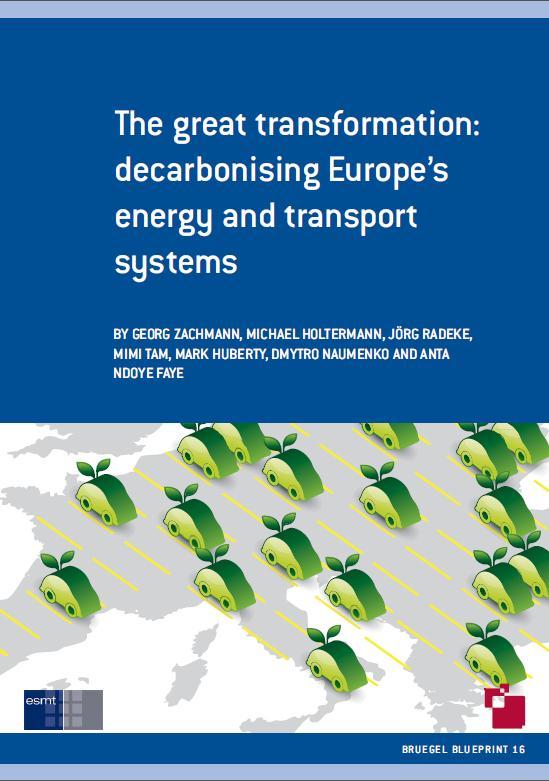 |
2 January 2012- Bruegel Blueprint Report The euro-area crisis dominates the economic news. Yet, the world and Europe may face even more important challenges that will shape our lives and the lives of our children. More people and more income will increase the global demand for energy. Choosing the right sources of this energy will be one of the determining factors of global temperature. The continued reliance on fossil-fuel energy sources is one of the main factors behind the risk of significant global temperature increases. Economic growth in Europe will be affected by the costs of this transition from the current energy and transport system. A smooth transition towards a low-carbon energy and transport system could come at comparatively modest cost. Bruegel is contributing to this debate with this report, which is based on research that received funding from the Fuel Cell and Hydrogen Joint Undertaking. To consult the policy brief (executive summary, 166 KB) To consult the full report ( 4.8 MB). |
Fuel cells and Hydrogen technologies in Europe:
Financial and technology outlook on the European sector ambition 2014-2020
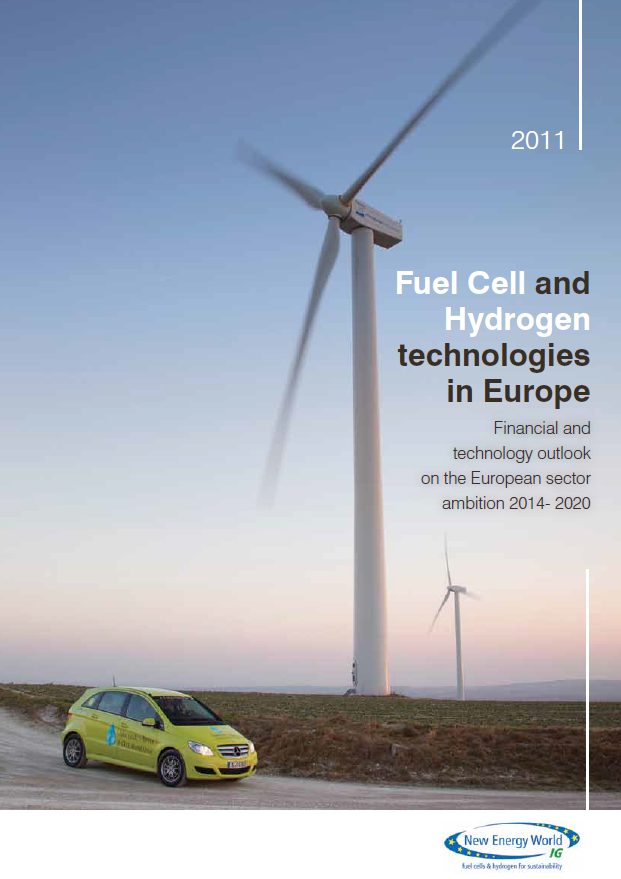 |
25 November 2011- Sustainable, secure and competitive energy supply and transport services are at the heart of the EU2020 strategy towards a low carbon and inclusive economy, geared towards a reduction of 80% of CO2 emissions by 2050. This objective has been endorsed by the European Institutions and Member States. It is widely recognised that a technological shift and the deployment of new clean technologies are critical for a successful transition to such a new sustainable economy. Furthermore, in addition to bringing a healthier environment and securing energy supply, innovation will provide huge opportunities for the European economy. However, this paradigm shift will not be purely driven by the market. A strong and determined commitment of public institutions and the private sector together are necessary to support the European political ambition. The period 2014-2020 will be critical to ensure that the necessary investments are realized to support the EU2020 vision. In terms of hydrogen and fuel cell technologies, significant investments are required for (a) transportation for scaling up the car fleet and building up of refuelling infrastructure needs, (b) hydrogen production technologies to integrate renewable intermittent power sources to the electrical grid (wind and solar), (c) stationary fuel cell applications, with large demonstration projects in several European cities and (d) identified early markets (material handling vehicles, back-up power systems) to allow for volume developments and decrease of system-costs. This Report summarizes the sector’s financial ambition to reach Europe’s objectives in 2020. Consult the report ( 1.6 MB) |
A portfolio of power-trains for Europe: a fact-based analysis:
The Role of Battery Electric Vehicles, Plug-in-Hybrids and Fuel Cell Electric Vehicles
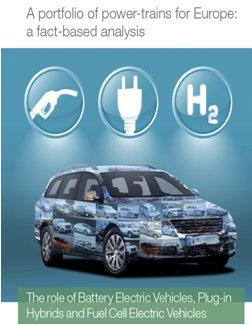 |
8 November 2010 This report is prepared by thirty of the largest global car manufacturers, oil and gas companies, utilities, equipment manufacturers, NGOs, governmental and clean energy organisations, with the collaboration of the Fuel Cells and Hydrogen Joint Undertaking. The analysis compares the economics, sustainability and performanceof the vehicles and infrastructures needed to reach the 80% decarbonisation goal set by the European Union and is an unprecedented effort from industry and other stakeholders to analyse the role of the various new car-types in meeting this objective, on the basis of proprietary industrial data. The publication( 2.9 MB). |
Report on the First interim evaluation of the FCH JU
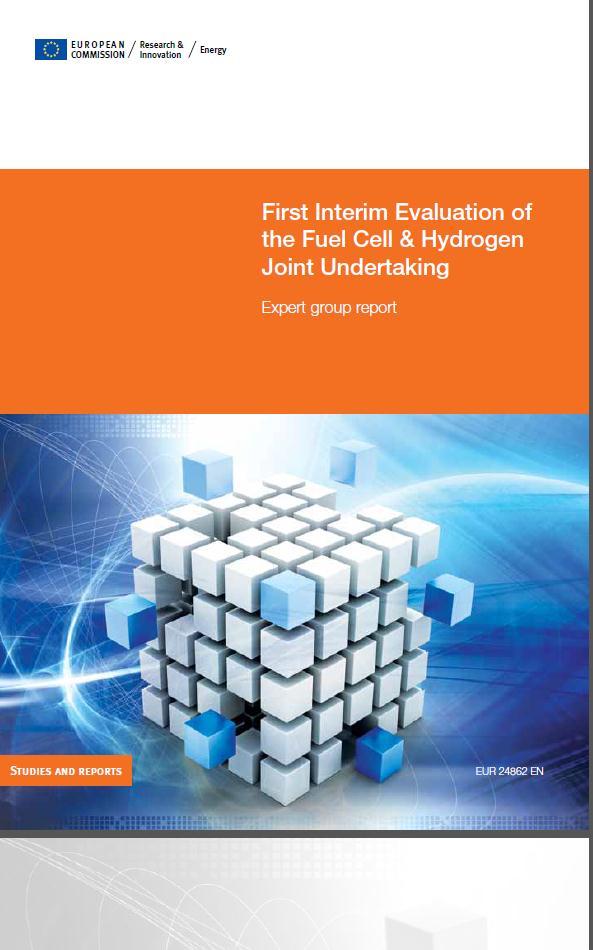 |
20 July 2011 The European Commission publishes the first interim evaluation of the FCH JU. The Publication( 686 KB). |
